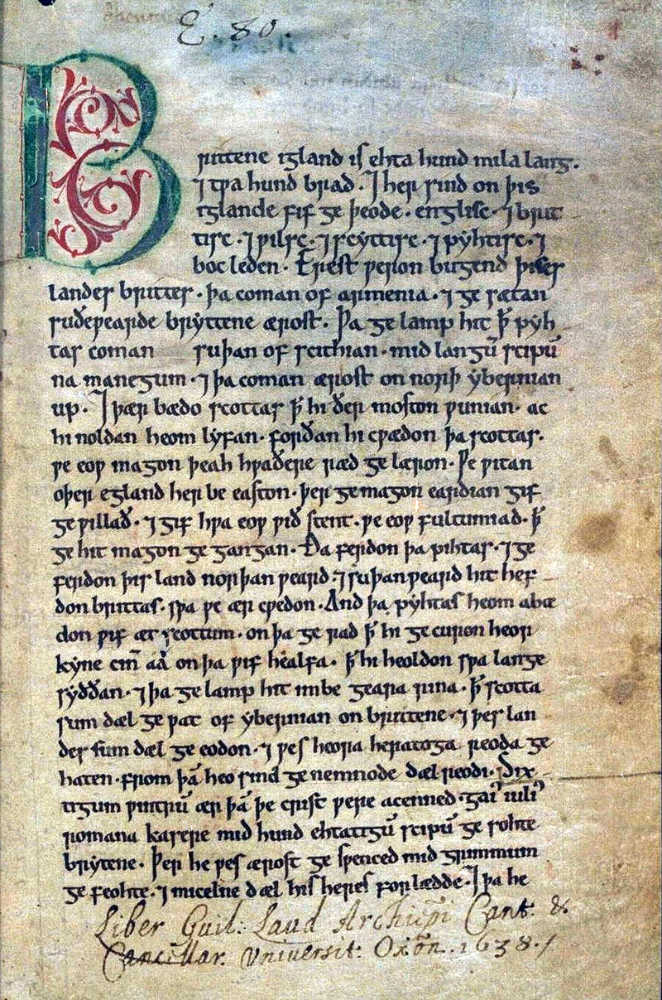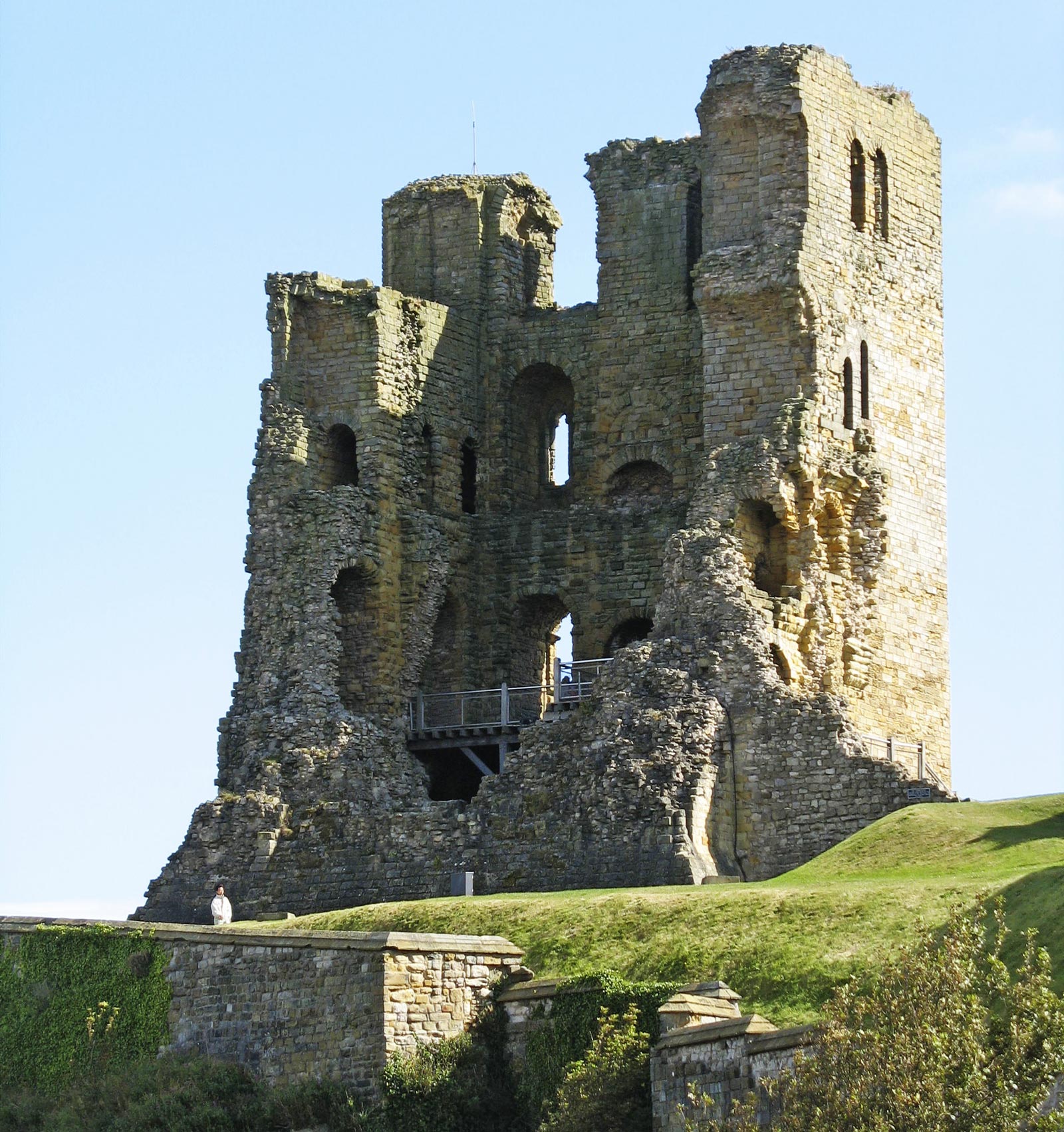Things fall apart
What we're told happened in the reign of King Stephen
The death of any medieval king was a precarious moment. Henry I's last day in 1135 was in many ways no different: the lynchpin of central authority was, for a moment, gone and everyone looked to themselves. Unlike almost all recent predecessors, Edward the Confessor, Harold and the first two Williams, this time there was not too many successors but too few.
Henry's named heir was his grandson, the three year old future Henry II. His barons had sworn to support him under the care of his mother, Henry's daughter the Empress Matilda, and her husband Geoffrey, count of Normandy's age-old rival Anjou. It wasn't perfect, but after Henry's loss of his son in the White Ship disaster of 1120, it was the best the old king could have done. In the wings, though, were the young Henry's cousins, the count of Blois and his younger brother and last minute survivor of the White Ship, Stephen.
It was Stephen who moved first, dashing across the Channel to secure the backing of the English nobility. It is no surprise that he did this relatively easily. Stephen had been a fixture of the English court and aristocracy for much of his life. He was a favoured 'new man' under Henry I, endowed with lands and the wealth the came with them. That said, as a grandson of William the Conqueror he was hardly an outsider and, while William of Malmesbury described his accession as illegal, it was almost universally accepted. Stephen was a known quantity. A safe pair of hands in contrast to a child with a mother who was not only haughty but married to the old enemy.
Stephen's only immediate resistance came from Baldwin de Redvers, earl of Exeter, who holed up in Exeter castle. It was a token gesture that could never threaten. After his coronation in Westminster Abbey, Stephen journeyed west with the full royal host. It was a great show of power and support. Baldwin surrendered to the inevitable. Stephen accepted Baldwin's homage and returned to him the keys to Exeter castle.
It was the kind of decision you make from a position of strength; chivalry straight out of legend.
It was disastrous.
In the days of this king there was naught but strife, evil and robbery...
Anglo-Saxon Chronicle (1136)
The Anglo-Saxon Chronicle's entry for 1136 gets straight to the point. Stephen's magnanimity had broken the spell. Nobles had flocked to Stephen for clarity, certainty and strength. For all the rivalries over favour and land that had simmered under Henry I, this was a society used to a strong monarch whose wrath was savage, as Henry I's moneyers and the North under William I could well testify. You were in or you were out.
The Anglo-Saxon Chronicle continues the story in 1139:
When the king came to England he held his council at Oxford, and there he seized the bishop Roger of Salisbury and his nephews Alexander bishop of Lincoln and the chancellor Roger, and put all in prison until they gave up their castles. Then when the traitors realised that Stephen was a mild man, gentle and good, and imposed no penalty, they committed every enormity. They had done him homage and sworn oaths, but they held to no pledge.
Anglo-Saxon Chronicle (1139)
Stephen had again shown that there was no penalty for defying him. From here things fell apart rapidly. As the Chronicle continues:
"I do not know nor can I tell all the enormities nor all the torture that they did to wretched men in this land. And it lasted the nineteen years while Stephen was king, and it always grew worse and worse."
If the king could not look after his own interests, what hope did anyone else have? For many, it was time to take matters into their own hands.

Some, such as Geoffrey de Mandeville in East Anglia, took to seizing lands, terrorising neighbouring areas in the process. Private castles, unauthorised by the crown, appeared in their hundreds. Some magnates took to minting their own coins and agreeing treaties with each other, the earls of Chester and Leicester and Gloucester and Hereford all carried on their own local diplomacy. All of a sudden barons start to follow the French model of local lordships as royal power evaporated.
As well as breaking for independence, barons had another alternative. The Empress Matilda had made her move towards the crown in the name of her young son. In this she was backed by her husband, Geoffrey, on the Continent who picked up Normandy between 1141 and 1144 after Stephen failed to return from his initial visit as king and duke in 1137. In England Matilda had the support of Henry I's illegitimate son, Robert earl of Gloucester. Robert was a leading power in the West Country who had accepted Stephen "for as long as he maintained his dignity unimpaired and kept the agreement" in the words of William of Malmesbury. This lasted til all of 1138.
Without any resistance from anyone they [Robert and the Empress' supporters in the west] put almost half of England, from sea to sea, under their own laws and ordinances. This lordship of his, the earl very greatly adorned by restoring peace and quietness everywhere except that in building his castles he extracted forced labour from all, and whenever he had to fight the enemy, he demanded everyone's help either by sending him knights or by paying scutage.
The Deeds of King Stephen
And that from the Gesta Stephani, the Deeds of King Stephen itself.
And there was worse to come. At the end of 1138 Matilda could even add Stephen's younger brother Henry of Blois, the wealthy and powerful bishop of Winchester. Stephen had overlooked Henry for the vacant see of Canterbury and the breach between the two was immediate. The following year Stephen lost his chief administrators and with it the leadership of the Church. Henry of Blois was appointed papal legate. There was no loyalty from the new Archbishop of Canterbury either, who went against Stephen's wishes in the mid-1140s to attend a papal council, stealing away across the Channel in an unseaworthy boat accompanied by, amongst others, a young London clerk called Thomas about whom we will hear much more.
Stephen was left with a heartland in Kent and the south east, managed for much of the time by his queen, another Matilda. This held out throughout the 1140s even following Stephen's capture after perhaps unwisely giving battle in Lincoln in 1141. Stephen's freedom was traded for Robert and influence ebbed and flowed through the rest of the decade. The Empress was also captured but escaped through the snow disguised in a white cloak.
Even the young Henry's entrance onto the scene could not break through the mire. He arrived in England in 1148 but his campaign floundered and he ran out of money to pay his mercenary contingent. Stephen, persevering but unchanging, gave Henry the money he needed to pay off his army and leave for Normandy.
Stephen could - or would - never land a final blow. He had inherited a full treasury and near-united kingdom in 1135. It had fallen apart within a handful of years. It had been Stephen's to lose, and lose he did. But by the end of the 1140s he had not actually, fully, lost. He was still king, the Empress' faction held sway in much of the kingdom and barons great and small acted with as much freedom as they could. The Anarchy it was called by nineteenth century historians, but the problem was not that there was no authority just too many sources of just enough power.
Did it all really go so wrong for Stephen and England so quickly? And as the 1150 dawned and the momentum drained out of the conflict, where would the initiative come from next?
Bibliography
- Davies, R.H.C. (January 1964) What happened in Stephen's reign 1135-1154. History, vol 49 issue 165
- ed King, E.; trans. Potter, K.R. (1999) William of Malmesbury's Historia Novella. Oxford, Oxford University Press

